
Margaux Wines
Margaux is undoubtedly one of the most prestigious appellations of the Bordeaux wine region. With its designation of origin controlled since 1954, Margaux covers almost 1,500 hectares, making it the...Read More

In-Stock

In-Stock

In-Stock

In-Stock


In-Stock


In-Stock

In-Stock

In-Stock

In-Stock

In-Stock

In-Stock

In-Stock

In-Stock

In-Stock

In-Stock

In-Stock

In-Stock

In-Stock

In-Stock

In-Stock

In-Stock


In-Stock

In-Stock

In-Stock

In-Stock

In-Stock

In-Stock

In-Stock

In-Stock


In-Stock

In-Stock

In-Stock

In-Stock

In-Stock

In-Stock

In-Stock

In-Stock

In-Stock

In-Stock

In-Stock

In-Stock
Margaux | Wines of Great Finesse from Poor Gravel Soils
The red wines of Margaux will delight Bordeaux-lovers who favour a sort of “quiet force” over the outright power of a big, bold Pauillac. These wines, born from the poor gravel soils so emblematic of the appellation, offer a certain delicacy, elegance and finesse in the glass, with a nose that interweaves fresh blackcurrants with the fragrant floral touch of violet.
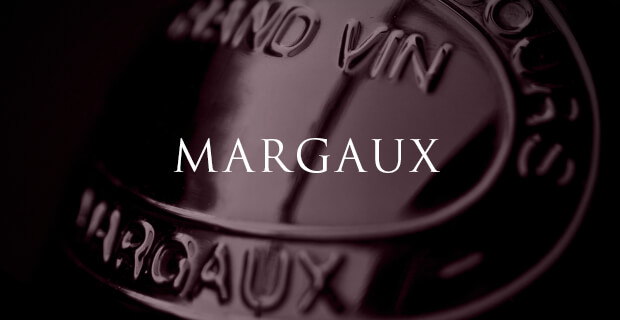
Boasting more Classified Growth estates than any other appellation on Bordeaux’s Left Bank, Margaux has become known for the signature style of its Cabernet-dominant blends, highly sought-after and emulated by wine producers far and wide.
The History of the Margaux Appellation
The winemaking history of today’s Margaux appellation expands back almost 2,000 years to the time of the Roman Empire. And while this area has always been home to a few vineyards, it was truly only in the 17th century that the Margaux landscape became so ideal for the production of fine wines. That is because before the 17th century most of the Médoc (a peninsula wedged between the Atlantic Ocean and the Gironde estuary, home to Margaux) was covered in salt marshes and swamps, better suited for grazing animals than viticulture.
As long-time consumers of Bordeaux wines, it was the Dutch who decided to drain these marshes and swamplands in the second half of the 17th century. This feat of engineering had two important consequences: improving the transportation of Médoc wines throughout and out of the region, and significantly increasing the area suited for wine growing. In the century that followed, several new châteaux began popping up all throughout today’s Margaux region and by the early 19th century, they were producing what was considered some of the best wines of Bordeaux.
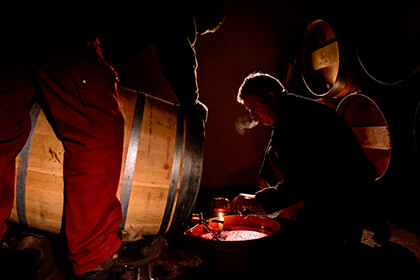
In the 1855 Classification of the Médoc and Graves, requested by Napoleon III for the Exposition Universelle de Paris, 21 wine producing estates in today’s Margaux appellation were classified, more than any other appellation on Bordeaux’s Left Bank. These included two Fifth Growth estates (Château Dauzac and Château du Tertre), three Fourth Growth estates (Château Pouget, Château Prieuré-Lichine, Château Marquis de Terme), ten Third Growths, five Second Growths (Château Rauzan-Ségla, Château Rauzan-Gassies, Château Durfort-Vivens, Château Lascombes, Château Brane-Cantenac) and the world-famous First Growth Château Margaux. Today the appellation is home to just over 80 producers, roughly 25% of which are classified.
The Margaux appellation was officially created on August 10th, 1954 and strict regulations set by the appellation d’origine controlée (AOC). Since then, the châteaux of Margaux have experienced a spectacular revolution in quality, led by more precise approach out in the vineyards and immense technological improvements in the winery. Margaux wines are today considered some of the best of Bordeaux, setting the international standard for elegant, complex Cabernet produced from poor gravel soils.
The Margaux Terroir: Cradle of Cabernet
The Margaux appellation spans roughly 3,700 acres (1,500 hectares) of vineyards and is the largest and southernmost appellation in the Haut-Médoc section of the Médoc region, on the Left Bank of Bordeaux. The appellation, roughly 15 miles (25 kilometres) from the city of Bordeaux, is home to 5 villages in total: the most prestigious village of Margaux, as well as Soussans, Arsac, Labarde and Margaux-Cantenac. Each of these villages heads its own commune.
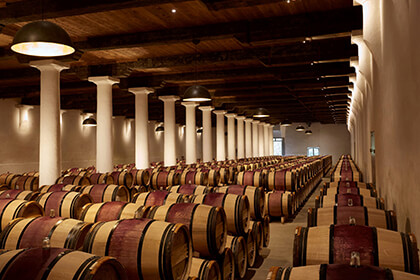
Soussans bordering Pauillac in the north is home to no cru classé wines, while the commune of Margaux, south of Soussans, includes ten classified growths. Among these are the most famous château of the appellation, the eponymous Château Margaux and Château Palmer, producing one of the most sought-after wines of today. Further south, Margaux-Cantenac boasts seven classified wines, including Third Growths Château d’Issan and Château Kirwan. Even futher south, Labarde is home to Château Dauzac and Château Giscours, while the southernmost commune of Arsac is where you will find famous Fifth Growth Château du Tertre.
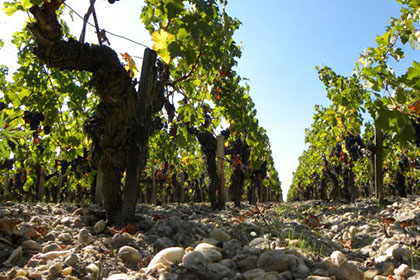
To the east of the appellation, the dense Landes pine forest shields the vineyards from winds from the Atlantic Ocean. The Gironde estuary nearby moderates the temperature, resulting in mild winters and sunny and dry (but not too dry) summers.
But what sets the terroir of the Margaux appellation apart is the signature soil. Here the gravel content of the soil is overall higher than anywhere else in the Médoc, whereas Pauillac and Saint-Estephe vineyards are characterised by more clay. The thickness of this gravel topsoil varies across the appellation, as does the content of the subsoil, which can include limestone, clay and silt. The loose, nutritionally quite poor and very well-draining gravel topsoil provides the ideal environment for the cultivation of Cabernet Sauvignon, the flagship varietal of the Margaux appellation. The poorer the soil, the deeper the vines must stretch their roots to find water and nutrients.
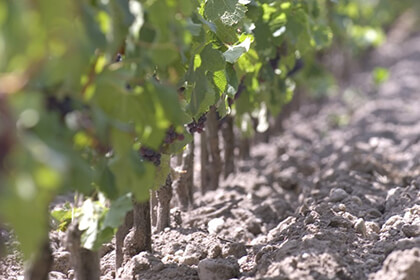
And the deeper they stretch, the more contact they have with the subsoil, whose wide range of different characteristics are consequentially reflected in the grape and the finished wine. This results in the great complexity and elegance characteristic of Margaux wines.
Apart from Cabernet Sauvignon, the Margaux appellation also permits Cabernet Franc, Merlot, Carmenere, Petit Verdot and Malbec, which are often included in the final blend. The vines must be planted at a density of 2,631 to 4,048 vines per acre (or 6,500 to 10,000 vines per hectare) and yields are limited to roughly 45 hectolitres per hectare. Unlike the rest of the Médoc appellations where the vineyards of each estate are clearly divided and usually arranged into single blocks, in Margaux the vineyards of different estates are often quite dispersed and mixed up with one another. This explains the greater emphasis on grape varietal and winemaking over specific micro-terroir of origin in the Margaux appellation.
How to Enjoy the Wines of Margaux
Margaux wines are characterised by a very deep, bright garnet-red colour in the glass, with purple highlights in its youth which mellows out to an orange-red with age. The classic aromas of Margaux wines include rich black fruit (notably blackcurrants), as well as floral aromas (dried violet petals). Often described as the most “feminine” wines of the Médoc region, they show a beautiful elegance, great balance and considerable body on the palate, with tannins that are quite delicate and finely grained.
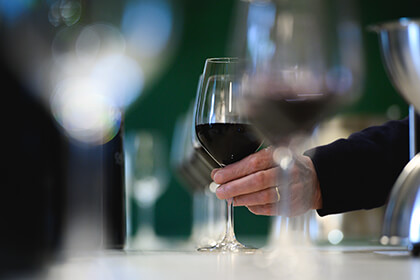
The wines of Margaux are built to age with the best vintages (1945, 1953, 1959, 1961, 1983, 1990, 1995, 1996, 1999, 2000, 2005, 2006, 2008, 2009, 2010 and more recently 2015 and 2018) evolving beautifully through several decades in the bottle and becoming even smoother and more balanced with age.
The “quiet force” and elegance of Margaux wines make them fantastic natural pairings with a wide range of dishes, the most classic of which is roast lamb. They will also further elevate gourmet dishes made with most braised, roasted or grilled meats, including veal, pork, duck or squab, especially when prepared with earthy ingredients such as mushrooms or truffles. To fully appreciate a Margaux wine, we suggest decanting it for at least one hour before consuming it and serving it at 60°F (16°C).